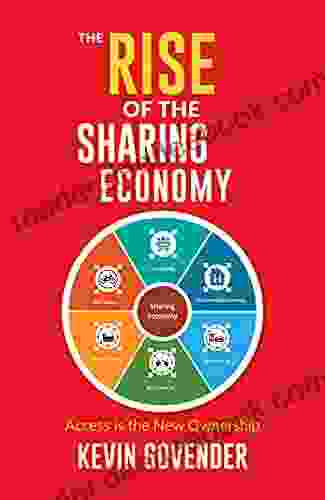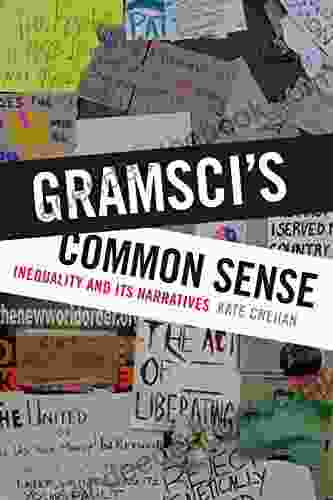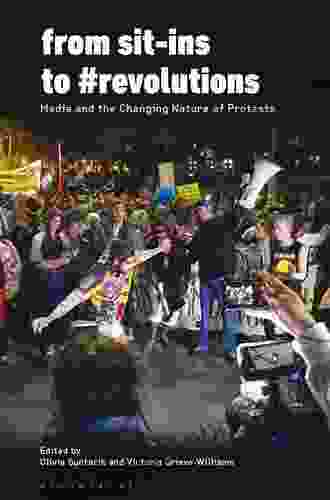Gramsci, Common Sense, Inequality, and Its Narratives: A Comprehensive Exploration of an Ideological Framework

In an era characterized by persistent social and economic inequality, it becomes imperative to scrutinize the underlying ideological frameworks that perpetuate and justify these disparities. Antonio Gramsci's theory of common sense offers a profound analytical lens to investigate how individuals perceive and understand the world around them and how these perceptions are shaped by dominant power structures. This article endeavors to explore the intricate relationship between Gramsci's concept of common sense, inequality, and the narratives that legitimize it. Through a comprehensive analysis of Gramsci's ideas, we aim to shed light on how common sense can be both a tool of domination and a site of potential resistance against oppressive social structures.
4.3 out of 5
| Language | : | English |
| File size | : | 2129 KB |
| Text-to-Speech | : | Enabled |
| Screen Reader | : | Supported |
| Enhanced typesetting | : | Enabled |
| Word Wise | : | Enabled |
| Print length | : | 233 pages |
Gramsci's Theory of Common Sense
Central to Gramsci's analysis of social and political power is his concept of common sense. Common sense, in Gramsci's framework, refers to the shared beliefs, values, and assumptions that form the basis of our everyday understanding of the world. It is a system of knowledge and beliefs that is deeply rooted in our lived experiences and cultural contexts. However, Gramsci emphasizes that common sense is not simply a neutral reflection of reality; rather, it is shaped by the dominant ideologies and power structures of society.
Common Sense and Ideologies
Gramsci maintains that common sense is infused with ideological elements that serve to maintain and reproduce existing social relations. Ideologies, in Gramsci's view, are systems of beliefs and values that legitimize and justify the interests of dominant social groups. They provide a framework for interpreting the world in a manner that favors particular power relations and reinforces the status quo. Gramsci argues that common sense is often shaped by the ideologies of the ruling class, which are disseminated through various institutions and cultural practices, including the media, education, and religion. Thus, common sense becomes a powerful tool for perpetuating social and economic inequality.
Common Sense and Inequality
The intertwining of common sense and inequality is a central theme in Gramsci's analysis. He contends that common sense contributes to the maintenance of inequality by naturalizing and legitimizing existing power structures. Dominant ideologies shape common sense in ways that make inequality appear natural and inevitable, obscuring the social and historical processes that have produced it. For example, prevailing notions of meritocracy and individualism can perpetuate the belief that economic success is solely determined by individual effort, ignoring the systemic barriers that hinder social mobility for many individuals.
Narratives of Legitimation
Gramsci emphasizes the role of narratives in legitimizing inequality. These narratives are stories, myths, and cultural representations that serve to explain and justify the existing social order. They provide a framework for understanding the world that aligns with the interests of dominant groups and reinforces the existing power dynamics. For instance, narratives that emphasize the importance of hard work and self-reliance can legitimize economic inequality by portraying it as a just outcome of individual effort and merit. Such narratives overshadow the structural factors that contribute to inequality, such as unequal access to education, healthcare, and employment opportunities.
Resisting Common Sense Hegemony
Despite the powerful role of common sense in perpetuating inequality, Gramsci also recognizes its potential for resistance. Common sense can be contested and transformed through critical analysis and collective action. Gramsci argues that the struggle for social change involves challenging the dominant ideologies and narratives that shape common sense. By critically examining the taken-for-granted beliefs and assumptions of society, individuals and groups can disrupt the hegemonic order and create space for alternative narratives that promote greater equality and justice.
Counter-Narratives for Social Transformation
In the pursuit of social transformation, Gramsci advocates for the development and dissemination of counter-narratives that challenge the dominant narratives of legitimation. These counter-narratives should expose the underlying mechanisms of oppression and inequality and offer alternative visions of a more just and equitable society. By presenting alternative perspectives and challenging the taken-for-granted assumptions of common sense, counter-narratives can empower individuals and groups to envision and work towards a different social order.
Gramsci's theory of common sense, inequality, and its narratives provides a valuable analytical framework for understanding the complex relationship between ideology, power, and social change. By recognizing the role of common sense in perpetuating inequality and legitimizing oppressive power structures, we can work towards challenging these dominant narratives and creating a more just and equitable society. Through critical analysis, collective action, and the development of counter-narratives, we can empower ourselves and others to envision and strive for a world where common sense is a force for liberation and equality.
4.3 out of 5
| Language | : | English |
| File size | : | 2129 KB |
| Text-to-Speech | : | Enabled |
| Screen Reader | : | Supported |
| Enhanced typesetting | : | Enabled |
| Word Wise | : | Enabled |
| Print length | : | 233 pages |
Do you want to contribute by writing guest posts on this blog?
Please contact us and send us a resume of previous articles that you have written.
 Book
Book Page
Page Chapter
Chapter Text
Text Story
Story Reader
Reader Library
Library Paperback
Paperback Magazine
Magazine Glossary
Glossary Foreword
Foreword Preface
Preface Synopsis
Synopsis Footnote
Footnote Scroll
Scroll Tome
Tome Bestseller
Bestseller Classics
Classics Narrative
Narrative Biography
Biography Memoir
Memoir Reference
Reference Encyclopedia
Encyclopedia Thesaurus
Thesaurus Character
Character Librarian
Librarian Borrowing
Borrowing Archives
Archives Periodicals
Periodicals Study
Study Scholarly
Scholarly Lending
Lending Academic
Academic Rare Books
Rare Books Special Collections
Special Collections Literacy
Literacy Thesis
Thesis Dissertation
Dissertation Theory
Theory Textbooks
Textbooks Joyce Lee Malcolm
Joyce Lee Malcolm Danny Katch
Danny Katch F A Chekki
F A Chekki Emily Williams
Emily Williams Marsha List Konz
Marsha List Konz Fiona Gribbon
Fiona Gribbon Carol Matz
Carol Matz Gary E Gibbons
Gary E Gibbons Tonya Thomas
Tonya Thomas David Placeres
David Placeres Brian Belton
Brian Belton Larry Gates
Larry Gates Bernard Malamud
Bernard Malamud Ignacio Merino
Ignacio Merino Geoff England
Geoff England John P Cann
John P Cann Dana Reinhardt
Dana Reinhardt George Galdorisi
George Galdorisi Richard Denniss
Richard Denniss Laurie Salzler
Laurie Salzler
Light bulbAdvertise smarter! Our strategic ad space ensures maximum exposure. Reserve your spot today!

 Esteban CoxUnveiling the Intriguing Novel "The Unseen Doctor": A Gripping Tale Rooted in...
Esteban CoxUnveiling the Intriguing Novel "The Unseen Doctor": A Gripping Tale Rooted in...
 Brody PowellInstitutions, Strategic Restraint, and the Rebuilding of Order After Major...
Brody PowellInstitutions, Strategic Restraint, and the Rebuilding of Order After Major... Jaylen MitchellFollow ·5.6k
Jaylen MitchellFollow ·5.6k Peter CarterFollow ·18.4k
Peter CarterFollow ·18.4k Isaac AsimovFollow ·13k
Isaac AsimovFollow ·13k James JoyceFollow ·12.2k
James JoyceFollow ·12.2k Gabriel Garcia MarquezFollow ·2.5k
Gabriel Garcia MarquezFollow ·2.5k Nikolai GogolFollow ·12k
Nikolai GogolFollow ·12k Vladimir NabokovFollow ·3.9k
Vladimir NabokovFollow ·3.9k Gerald BellFollow ·16.5k
Gerald BellFollow ·16.5k

 Timothy Ward
Timothy WardThe Rise of the Sharing Economy: A Transformative Force...
The sharing economy, a revolutionary...

 D'Angelo Carter
D'Angelo CarterMidsummer Night's Dream: Maxnotes Literature Guides
Midsummer...

 Ralph Ellison
Ralph EllisonThe Alice Stories: Our Australian Girl
The Alice Stories...

 Jayson Powell
Jayson PowellThe Enigmatic Rhythmic Gestures in Mozart's Music:...
Wolfgang Amadeus...
4.3 out of 5
| Language | : | English |
| File size | : | 2129 KB |
| Text-to-Speech | : | Enabled |
| Screen Reader | : | Supported |
| Enhanced typesetting | : | Enabled |
| Word Wise | : | Enabled |
| Print length | : | 233 pages |












